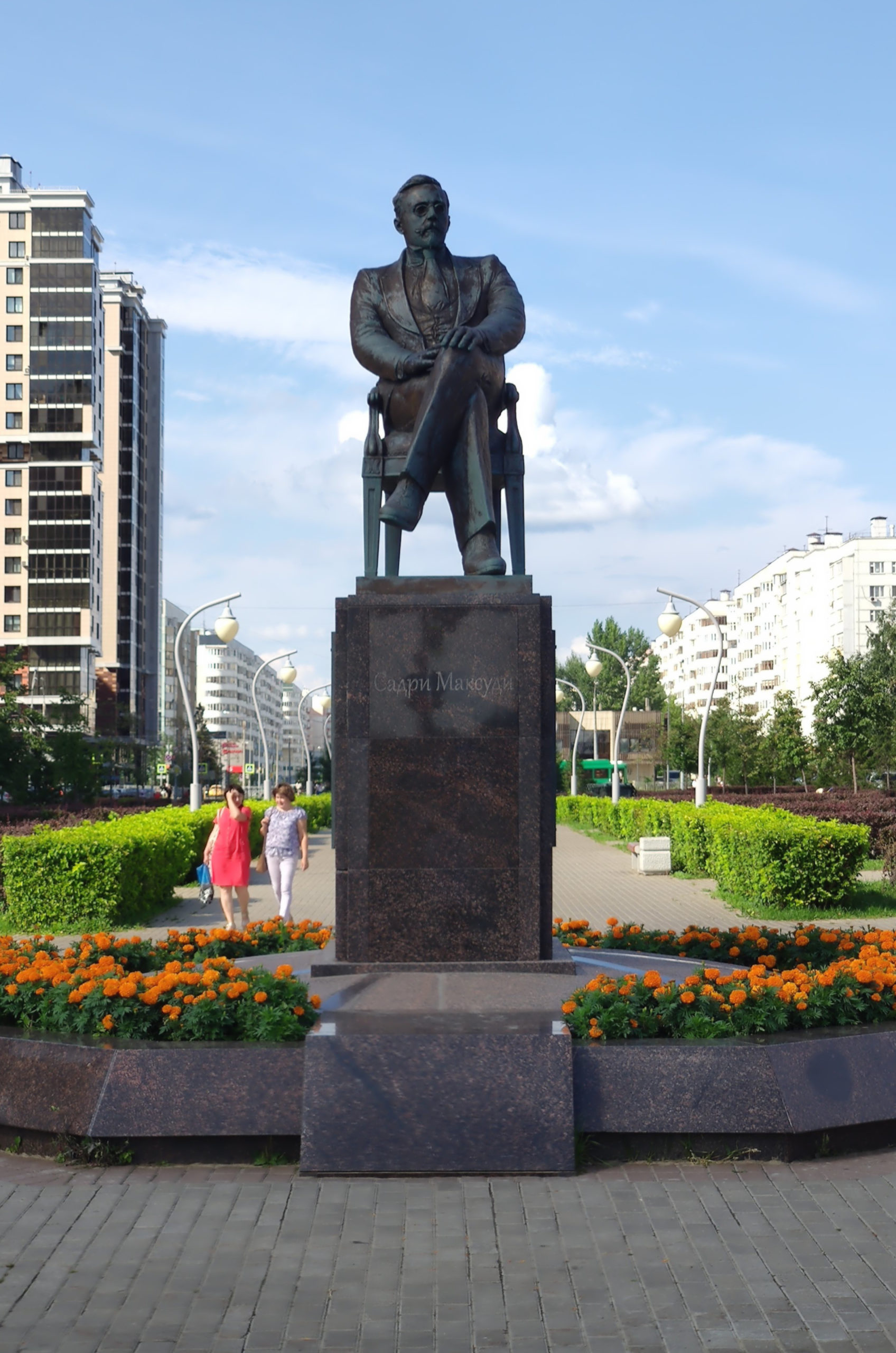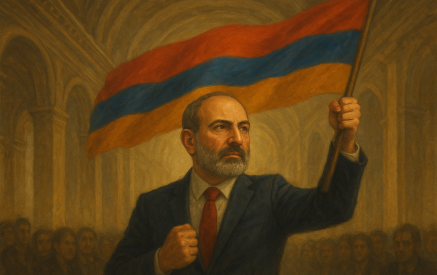With the fall of the Soviet Union, Turkey (under late President Turgut Ozal) saw new opportunities to engage with the newly independent republics and autonomous regions of Russia of Turkish ethnicity in post-Soviet Central Asia and the Caucasus. Turkey was encouraged to fill the Soviet Russian vacuum in the region. For this reason, Ankara deployed its soft power to contain Russian cultural and political influence and bring these regions under its radar.
According to Sergey Sukhankin, in recent years, Russian experts have started to admit that the “Great Turan” project is gaining popularity in the Turkic-speaking world, profoundly amplified by Turkey’s military successes and growing assertiveness in the region.
In Moscow, many are realizing that the idea of the “Great Turan,” built on the ideology of the unity of the Turkish people, is rapidly spreading not only across the South Caucasus and Central Asia, but is also gaining popularity in ethnically and religiously diverse parts of Russia as well. This is visible in the rhetoric of both Russia’s conservative thinkers and representatives of the military-political leadership, such as Defense Minister Sergei Shoigu who demonstrated a growing uneasiness over Turkey’s growing influence.
Read also
Russia’s concerns rest on two main pillars. On the one hand, Russian experts admit that Turkey’s foreign policy and military successes, ambitious domestic projects and elaborate use of “soft power,” which rest on the highly revered conservative values and traditions of the Muslim world as well as the idea of pan-Turkism, have already resulted in its increasing popularity among Russia’s Turkic-speaking peoples. On the other hand, memories of the past, of the time of internal Russian crises, when many of the Turkic separatist entities openly demanded either broader autonomy or vouched for full independence and sovereignty, are still very much alive in Tatarstan, for example. In some regions, Russia managed to find peaceful solutions, albeit having to cede sizable economic benefits and political and cultural autonomy, but in others, a confrontation took the form of open armed conflict such as in Chechnya.
This article will analyze Turkey’s soft power (cultural, business and media) in Tatarstan, located in the Volga Federal District, and the future of Turkish-Russian relations.
Turkish Involvement in Tatarstan
On the eve of the fall of the Soviet Union in August 1990, the Tatar Autonomous Soviet Socialist Republic backed by Turkey issued a Declaration of State Sovereignty. After the dissolution of the USSR in 1991, it continued on the course for separation from Russia. In a referendum conducted in March 1992, the majority favored independence, and in November of the same year, a Constitution of the Republic of Tatarstan was adopted, declaring it a sovereign state. However, the Constitutional Court of the Russian Federation declared those documents to be illegal. In February 1994, Russia offered an autonomy agreement to Tatarstan, promising a broad range of rights and policy-making abilities, but stopping short of full independence. Tatar authorities, realizing that their options were limited, rejected becoming another Chechnya and accepted the deal.
Under the Russian deal, Tatarstan was going to have its own constitution, a legislature, a tax code, a national bank and its own citizenship system. The Kazan government can conduct its own relations with other subjects of the Russian Federation and even foreign states and can set its own foreign economic policy and trade relations. However, the re-centralization of power that took place under President Vladimir Putin reduced the region’s autonomy.
Nevertheless, the active Tatar Diaspora in Turkey remains supportive of the idea of an independent Tatarstan. On December 20, 2008, in response to Russia recognizing Abkhazia and South Ossetia, the Milli Mejlis of the Tatar People declared Tatarstan independent and asked for United Nations (UN) recognition. However, this declaration was ignored both by the UN and the Russian government.
Rais Suleimanov, a Russian religious scholar and expert on Tatarstan, wrote an article titled “Tatarstan cannot decide: is it a part of Russia or a governorate of Turkey” in which he argued that a significant contributing factor to Tatarstan’s prosperity in recent years has been investments by Turkish businesses, to the tune of $1.5–2 billion, which constitutes one-fourth of all foreign investments in Tatarstan. According to Turkish businessman Rifat Hisarciklioglu, “Tatarstan gets 30 percent of Turkey’s investments in Russia.” The Russian News Agency TASS highlighted that among those Turkish investments are “about a dozen of major enterprises built by Turkish investors … located in the Alabuga special economic zone” in north-central Tatarstan.
However, Russia, fearing the rise of Turkish political influence in the region, started closely monitoring Turkish involvement in the region. After November 24, 2015, when the Russian Su-24 bomber was shot down in Syria by an air-to-air missile fired from a Turkish F-16 fighter jet, Russia reacted fiercely. As a result, Russia introduced economic sanctions against Turkey, which prohibited “the imports of many Turkish food products including fruits, vegetables, poultry, and salt and imposed a ban on hiring Turkish nationals.”
Tatarstan’s status and political relations with Moscow and Ankara were challenged. In December 2015, Tatarstan’s President Rustam Minnikhanov commented on his region’s relations with Turkey and said, “We are in the same language group, of the same religious identity.” The Grand Mufti of Tatarstan Kamil Samigullin, who studied in Turkey under Mahmut Ustaosmanoğlu (the leader of influential İsmailağa Jamia) had similar remarks too. Concerned by such comments, Moscow centralized its influence on Tatarstan and closed many Turkish agencies and projects.
In December 2015, Tatarstan was planning the installation of a monument to the prominent statesman and scholar Sadri Maksudi Arsal, a Tatarstan native who moved after the Bolshevik Revolution to Turkey where he worked as an advisor to the first president of the Turkish Republic Mustafa Kemal Ataturk. The monument was supposed to be opened in Kazan’s Istanbul Park by Turkish President Recep Erdoğan. After the events in late November, Erdoğan’s visit was canceled.
Around the same time, the Yunus Emre Institute for Turkish Studies at the Kazan Federal University, which opened as a Turkish “soft power” initiative in 2012, was closed. As part of the anti-Turkish measures, the Russian Ministry of Culture circulated a “recommendation” to all republics with Turkic titular populations, including Tatarstan, to break off relations with the International Organization of Turkic Culture (TÜRKSOY). Most of the autonomous republics agreed on Moscow’s terms, except Tatarstan where its officials questioned whether the federal Ministry of Culture can “dictate” to regional cultural authorities.
Between 2012 and 2013, several terrorist attacks shook the autonomous republics of the North Caucasus and the Volga region. Moscow was also concerned about some ISIS members returning to the region. In November 2015, ISIS propagandists released two videos in which Tatarstan is explicitly mentioned as a target of radical Islamists. Some Russian media outlets, indirectly hinting at Turkey, accused “foreign countries” of backing such terror attacks.
“TRT Russia”; a Tool of Turkish Soft Power
Popular Turkish soap operas have penetrated the region, and Turkey and the Republic of Tatarstan have jointly organized cultural and academic events. Many Tatar students are attending Turkish universities. To spread Turkey’s soft power deep inside Russia and neighboring states, the state-run Turkish Radio and Television Corporation (TRT) launched a new Russian digital platform in May 2020. TRT Russian media platform announced that it will “play a key role in battling disinformation and manipulation.” Turkey was keen on reaching its ethnic Turkic cousins in Russia and Central Asia.
The timing of TRT Russian’s launch has drawn special interest among many foreign policy observers who were quick to point out that Turkey will be challenging Russia in its own house and backyard. In an interview with the Middle East Eye, Serdar Karagoz, the deputy director-general at TRT, highlighted that the Turkish media also has similar plans in the Balkans, Africa and China. Karagoz stated that the “objective is to reach 300 million Russian speakers who also live in Central Asia, the Caucasus, Western Europe and even in Israel.”
Turkey also aimed to whitewash its image in Russia through soft power. Russia is Turkey’s largest source of visitors in the vital tourism industry, with seven million Russian tourists visiting in 2019, according to the Turkish Tourism Ministry. After the military clashes between pro-Turkish fighters and Russia-backed Syrian forces in Idlib in February 2020, Russian media such as the Sputnik International declared Turkey’s Hatay as a province stolen from Syria and unjustly annexed to Turkey by the French mandate, creating an uproar on Turkish social media. Sputnik also had directly accused Erdogan’s family of buying oil from ISIS.
After the war in Ukraine, TRT Russian started spreading anti-Russian news and reports about the Russian military operations in Ukraine. A report published on May 13, 2022 titled “Hundreds of Russians refused to serve in the army since the beginning of the war” argues that Russian soldiers are refusing to obey military orders. The media channel also highlights in detail the latest Turkish military achievement in Kazakhstan, where both countries signed a joint production accord for drones. The memorandum of understanding signed between Turkish Aerospace Industries (TUSAS) and state-owned Kazakhstan Engineering foresees the joint production of Anka — a medium-altitude, long-endurance, unmanned aerial vehicle (UAV) — by Turkish and Kazakh experts. This makes Kazakhstan the first country to produce these reconnaissance-strike drones outside of Turkey.
Conclusion
The launch of TRT Russian was a clear message from Turkey to Russia. In the last few years, Turkey started culturally, politically and even militarily expanding in Russia’s traditional sphere of influence.
Russian elites are concerned that in the case of internal crises, pan-Turkic separatist sentiments could recur. At this juncture, a particularly telling case is that of Tatarstan. Aside from having several pro-Turkic organizations operating on its territory, Tatarstan has always stood independent from Moscow. Perhaps, the most alarming example – for Moscow, of course – was the post-2015 developments and the downing of the Russian jet in Syria. Instead of openly breaking up with Ankara, Tatar leaders opted to remain silent and even showed support for Ankara, causing visible concerns in Moscow.
Interestingly, amidst the crisis in the bilateral relations between Ankara and Moscow, conservative Russian commentators have wondered whether, in the case of a military confrontation between Ankara and Moscow, Tatarstan would act as Turkey’s “silent ally” in Russia.
Sculpture of Sadri Maksudi Arsal in Kazan’s Istanbul Park, Russia (Photo: Wikimedia Commons/ Reda Kerbush)



























































